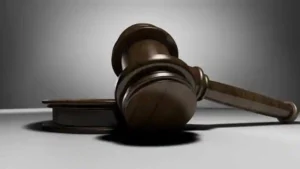7 GUIDING PRINCIPLES ON DISCHARGE AND FRAMING OF CHARGE
In the case of Vijayan Vs. State of Kerala and another (2010 SCC 398 SC. 1979 3 SCC P.4=AIR 1979 SC P.366) in the case of Union of India Vs. Prafulla Kumar Samal and another. Where in the Hon’ble Supreme Court formulated the following 7 guiding principles.
1. The judge while considering the question of framing the charges U/Sec. 227 Cr.P.C has the undoubted power to sift and weigh the evidence for the limited purpose of finding out whether or not a prima facie case against the accused has been made out. To determine prima facie case would depend upon the facts of each case.
2. Where the materials placed before the court disclose grave suspicion against the accused which has not been properly explained, the court will be fully justified in framing a charge and proceeding with the trial.
3. The court can not act merely as a post office or a mouth piece of the prosecution but it has to consider the broad probabilities of the case. There cannot be a roving enquiry into the pros and cons of the matter and weigh the evidence as if a trial was being conducted.
4. On the basis of material on record if the court could form an opinion that the accused might have committed the offence, it can frame the charge.
5. At the time of framing of the charges, the probative value of the material on record can not be gone into but before framing of charge the Court must apply it’s judicial mind on the material placed on record and must be satisfied that the commission by the accused was possible.
6. At the stage of Sec.227 and 228 Cr.P.C, the court is required to evaluatethe material and documents on record with a view to find out the existence of all the ingredients constituting the alleged ofence but the court cannot be expected to presume that the prosecution story is gospel truth.
7. If two views are possible and one of them gives rise to suspicion only, as distinguished from grave suspicion, the trial judge will be empowered to discharge the accused irrespective of the result of the trial.


